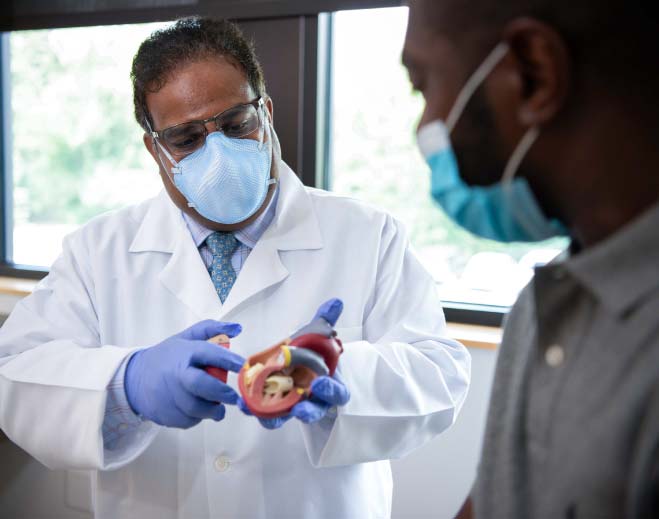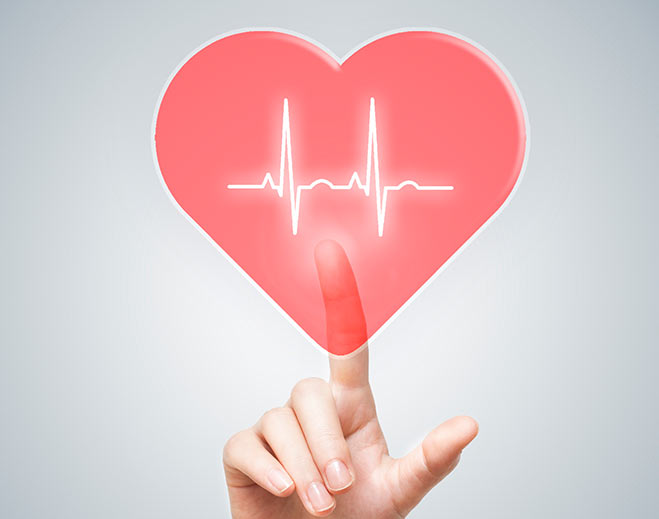
What is AFib?
Atrial fibrillation (AFib) is a type of irregular heartbeat or arrhythmia that may interfere with a person’s normal blood flow. This interruption
is what makes people with AFib more at risk for blood clots and stroke. AFib may either be permanent or may also come and go. It is more common in adults aged 65 and above.
At least 2.7 million Americans live with AFib, though not all experience symptoms or even know they have the condition.
What Happens During AFib?
During AFib, the electrical signals (from a group of cells) that tell your heart to start beating become faulty. This malfunction affects two upper chambers of the heart (called atria) and causes them to quiver. It also disrupts the blood flow into the
lower chambers of the heart or the ventricles and causes them to contract faster or in an irregular manner. Because of this, the ventricles may not be able to pump blood to the rest of your body as it should.
The trembling in your atria may lead to blood pooling which may further cause blood clots. These blood clots may pump out of the heart, go to the brain and cause blockages, which may then lead to a stroke.
What Causes AFib?
The exact cause of AFib remains unknown. However, some conditions that may negatively affect your heart health and eventually lead to AFib include
- Congestive heart failure
- Coronary artery disease
- Heart valve disease
- High blood pressure
- Hypertrophic cardiomyopathy
- Overactive thyroid gland
- Pericarditis (inflammation of the covering of the heart)
- Thyroid disease
Heart surgery, binge drinking and taking certain medications may also lead to AFib.
AFib Symptoms
Most of the symptoms of AFib are related to how often heart rhythm disturbances occur and how fast the person’s heart beats. The most common symptoms of AFib include
- Quivering or fluttering heartbeat
- Irregular heartbeat
- Anxiety
- Chest pain
- Dizziness
- Fainting or confusion
- Fatigue
- Shortness of breath
- Sweating
- Weakness
Is AFib Dangerous?
Some episodes of AFib get resolved on their own, some come and go and some others become permanent. But as mentioned, generally, AFib is a serious condition that may lead to a stroke, heart failure, chronic fatigue, inconsistent blood supply and some
other heart rhythm issues. Strokes caused by AFib tend to be more severe that strokes from other causes. This happens when a blood clot or plaque (fatty deposits) in the blood vessel lining block blood flow to the brain. AFib can become life-threatening
when left untreated, so be sure to speak with a doctor as soon as you see signs and symptoms of AFib.
How Can You Reduce Your Risk for AFib?
Maintaining a healthy lifestyle is the best way to reduce your risk for AFib. Eat a heart-healthy diet (avoid salt, saturated fats and high-cholesterol foods). Maintain a healthy weight and exercise regularly. Manage your blood pressure. Avoid smoking
and limit your alcohol and caffeine intake. These things can help you keep your heart healthy and prevent other chronic conditions.
AFib Treatment at Baptist Health System
Baptist Health System has board-certified heart specialists who provide several treatment options and procedures for AFib. However, many people may not even be aware that they have AFib. Having a heart screening can provide an evaluation and diagnosis
that leads to a treatment plan to help lower risks for serious complications. Treatments for AFib may include
- Medications for heart rate and rhythm
- Blood thinners that can prevent blood clots and thus reduce risk of stroke
- Electrophysiology treatments such as pacemaker placement or ablation
- Lifestyle changes
Your health can’t wait. Understand your heart health to stay or track or make a plan. Safe care is available to evaluate for electrical issues of the heart such as AFib. Finding out and taking action can be life-saving.






